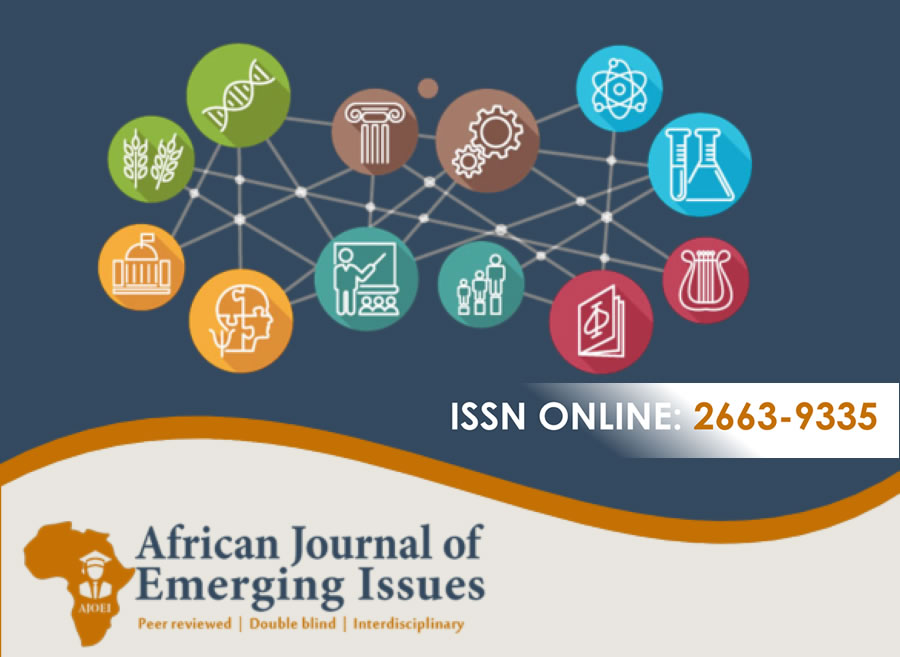THE INFLUENCE OF AUTHORITATIVE PARENTING ON THE PSYCHOSOCIAL WELL-BEING OF SECONDARY SCHOOL STUDENTS IN NAIROBI COUNTY, KENYA
Abstract
Purpose of Study: This study sought to assess the influence of authoritative parenting on the psychosocial wellbeing of students in secondary schools in Nairobi County, Kenya. Specifically, the study examined the influence of authoritative and uninvolved parenting on the psychosocial wellbeing of secondary school students in Nairobi County, Kenya.
Problem Statement: Research indicates that neglectful parenting can contribute to psychosocial crises and mental health challenges among adolescents. In Kenya, students facing poor psychosocial well-being often exhibit low academic performance, stress, anxiety, and behavioral issues. Despite interventions such as counseling services and teacher training, these challenges persist. Moreover, there is limited research on how specific parenting styles affect students’ psychosocial well-being, particularly in Nairobi County.
Methodology: This study adopted a descriptive cross-sectional survey design with a blend of qualitative and quantitative paradigms. The target population for the study was 235 secondary schools, 30550 form three students, and 235 PTA chair persons. Questionnaires and focus group discussion guide were used to collect data. Interview guides were used to collect data from Parent-Teacher Association (PTA) Chairpersons.
Result: The study revealed a strong and significant positive relationship between authoritative parenting and learners’ psychosocial well-being (r = .603, p < .001). Balanced parental control, warmth, and involvement emerged as key factors in fostering students’ emotional, social, and behavioral adjustment.
Recommendation: Policymakers and education authorities should integrate parenting education programs into schools and enhance psychosocial support services to promote responsive and communicative parenting. Such initiatives will strengthen students’ self-esteem, emotional resilience, and academic performance, thereby contributing to their overall well-being and success.
Keywords: Kenya, Authoritative parenting, Psychosocial Wellbeing, Students, Secondary Schools.
References
Adubale, A. A. (2017). Parenting styles as pre dicators of anxiety and depression of in- school adolescents in Nigeria. Africa Education Review, 14(3-4), 111-121.
Aikaterini, V., & Wassilis, K. (2023). Exploring parenting styles patterns and children’s socio-emotional skills. Retrieved from https://pmc.ncbi.nlm.nih.gov/articles/PMC10378631/
Bandura, A. (1969). Social-learning Theory of Identificatory Processes. Handbook of Socialization Theory and Research, 213, 262.
Baumrind, D. (1997). The discipline encounter: Contemporary issues. Aggression and Violent Behavior, 2(4), 321-335.
Bonsaksen, T., Vivian, C., & Janni, L. (2022). Students' mental health, well-being, and loneliness during the COVID-19 pandemic: A cross-national study. Retrieved from https://www.researchgate.net/publication/360896850_Students'_Mental_Health_Well-Being_and_Loneliness_during_the_COVID-19_Pandemic
Cortina, M. A., Sodha, A., Fazel, M., & Ramchandani, P. (2023). Prevalence of youth mental disorders in sub-Saharan Africa: A meta-analysis. Global Mental Health, 10, e12. https://doi.org/10.1017/gmh.2023.12
Kuppens, S., & Ceulemans, E. (2019). Parenting styles: A closer look at a well-known concept. Journal of child and family studies, 28, 168-181.
Liang, T. (2024). Relationship between parents’ anxiety, stress, depression and their children’s health-related quality of life and psychological well-being during the COVID-19 outbreak in Iran. Retrieved from https://pmc.ncbi.nlm.nih.gov/articles/PMC11423735/?utm_soure=chatgpt.com
Macharia, J., & Ogembo, O. (2024). Correlation between self-efficacy and psychosocial well-being among students in public universities in the Upper Eastern Region of Kenya. International Journal of Innovative Science and Research Technology, 1(3), 4-18.
Marie, S. (2024). Psychosocial support activities on learners’ psychosocial readiness and well-being in elementary education. Psychology and Education Journal, 10(1), 13-94.
Haidar, D. S., & Mohadad, A. (2024). Predicting students' academic performance based on academic self-concept, academic resilience, academic engagement, emotional self-regulation, and self-esteem. Journal of Adolescent and Youth Psychological Studies, 5(12), 31-40.
Herman, K. C., Reinke, W. M., & Eddy, C. L. (2018). The role of psychosocial wellbeing in the prevention of school-based mental health problems. School Psychology Quarterly, 33(1), 20-36.
Nderitu, E. W. (2018). Influence of parenting styles on pre-school children’s social emotional skills development in Gituamba Division, Laikipia County, Kenya (Doctoral dissertation).
Pandoyi, S., & Samiksha, J. (2021). Is authoritative parenting style better for your teenager's academics, well-being and mental health? - A systematic review. Retrieved from https://www.researchgate.net/publication/348751124Patton, M. Q. (2015). Qualitative research & evaluation methods: Integrating theory and practice (4th ed.). SAGE Publications.
Piyumi, M. (2023). The role of parenting practices in parent and child mental health over time. Cambridge University Press.
Pereira, A. (2024). Psychological well-being among adolescents: The role of parenting styles, causal attributions of academic success/failure, and perceived school performance. Journal of Psych educational Assessment, 1(3), 5-16.
Rono, A. C. (2018). Home environment and psycho-social development of preschool children in Moi’s-bridge zone-Uasin Gishu County, Kenya (Doctoral dissertation, Kampala International University).
UNICEF. (2021). The State of the World’s Children 2021: On my mind — Promoting, protecting and caring for children’s mental health. United Nations Children’s Fund. https://www.unicef.org/reports/state-of-worlds-children-2021
Wang, C., & Gu, X. (2019). Influence of adolescents’ peer relationships and social media on academic identity. Asia Pacific Journal of Education, 39(3), 357- 371.
Zebukumar, N., & Pattamathu, A. (2024). Gratitude expression, helping behaviour and psychosocial wellbeing among adolescent students in Kerala. International Journal of Indian Psychology, 12(2), 21-28.





